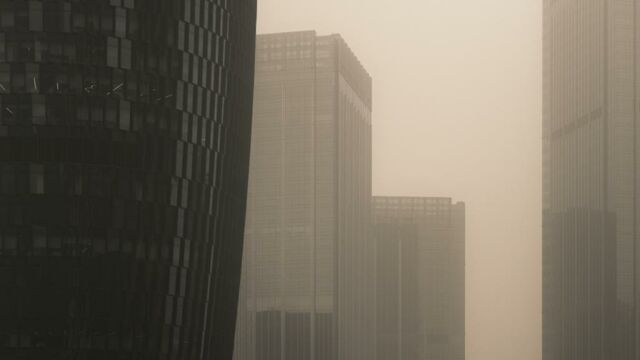This week a dust storm from the Sahara has blown through Europe and has caused the sky to turn orange due to the amount of dust particles in the air and is set to continue throughout the rest of the week. There can be some health concerns if you are caught in a sand storm that you might not think of. These are some symptoms to keep an eye out for and also some ways to stay safe.
Discover our latest podcast
Symptoms due to dust and sand storms
- Itchy or burning eyes
- Throat irritation
- Skin irritation
- Coughing or sneezing
- Respiratory or breathing difficulties, including asthma attacks
These are the most common symptoms due to these types of storms. If you already have underlying heart or lung issues, you should continue with your regular prescription. If you display any symptoms for an extended period of time after the sand storm has ended, you should talk to your GP.
Mate that stays in the south of Spain just sent me this, he's never seen a sand storm coming up looking like this.... pic.twitter.com/Qy3g3KsQ88
— DarkMice (@DarkMice3) March 14, 2022
Who can be affected by dust storms?

Anyone can be affected by dust storms, however, there are certain groups of people who are at higher risk of developing health issues:
- People with existing heart or lung conditions (including asthma and hayfever)
- Infants, children and adolescents
- Pregnant women
- People over 65 years of age
Read more:
⋙ Storm Franklin: Why are there so many storms in the UK right now?
⋙ Here’s how sleeping with the lights on could affect your health
⋙ Daylight saving time will become permanent, this is what it means for us
How to stay safe during dust storms
When a dust or sand storm hits, there are multiple things you can do to protect your health or others.
- Stay indoors, with windows and doors closed
- Stay in air-conditioned premises and switch the air-conditioner to ‘recycle’
- Avoid vigorous exercise, especially if you have a heart or lung condition
- Check on the vulnerable people you know if it is safe to do so















